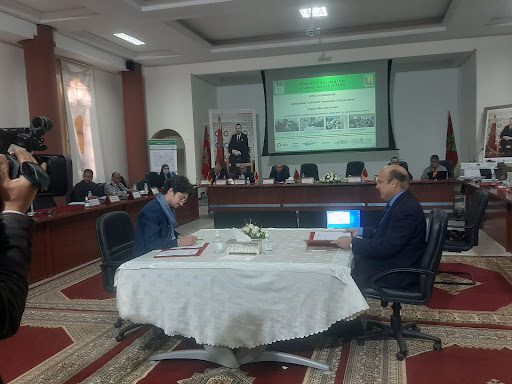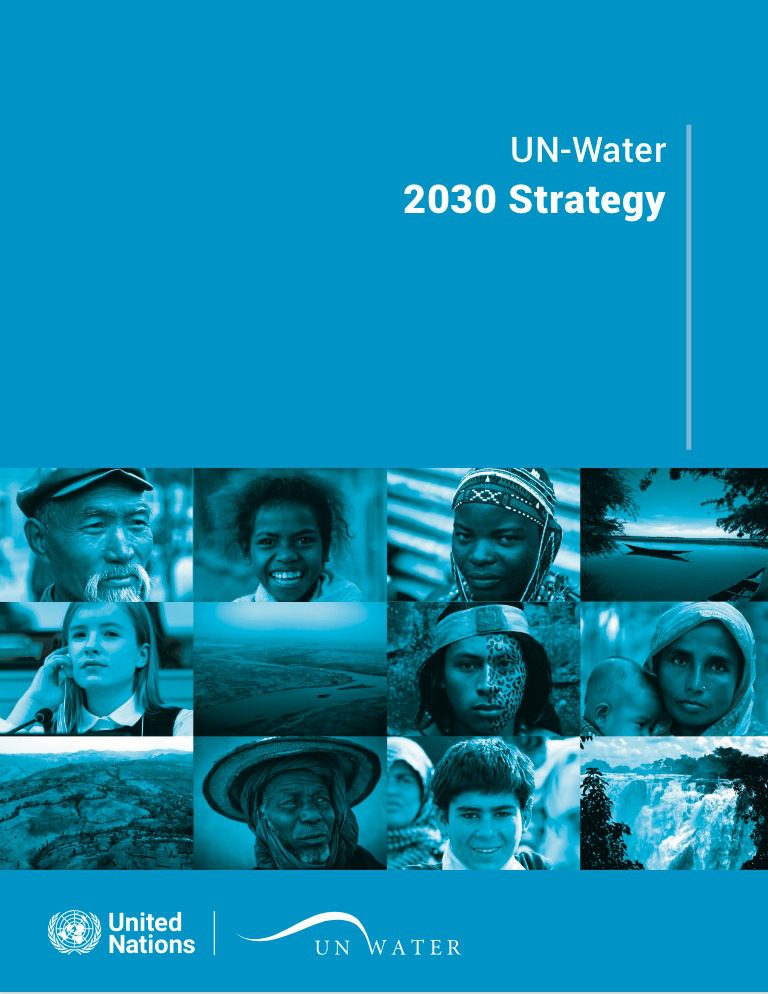Kelsey Cashman
HAF-UVA Intern

Cover Photo: The 50m well in Rhamna with no water, Photo by K.Cashman
The village had no water. On the day I traveled to Rhamna to talk to the President of the Ait Taleb rural municipality about our proposal for solar-paneled wells, there was no water. Their current well dropped 50 meters into the Earth, each meter carved out of the rock by hand. When the well was first built, all they needed was 10 meters to be able to provide water for the village. Now, even 50 meters deep there is only the tiniest of puddles all the way at the bottom, a small shimmering reflection at the bottom of a dark drop.
We talked to the President as we walked down the long dusty road that led to the well, experiencing only a small portion of the walk women from many villages have to endure often twice a day to provide water for their families. He told us that sometimes after walking up to 20km to reach the well, the women find that the well has already dried. They either have to walk even further to seek a different well or go home without water. It is always the mothers and daughters who make these treks across the sandy stretches. The High Atlas Foundation is working on a proposal that would drill boreholes equipped with solar pumps and build water towers in the thirteen villages of Rhamna and Youssoufia. In talking to the President, I learned just how much this would affect the lives of each of the 2,135 citizens of those villages, especially the women and girls.
The building of the new pumps would facilitate the building of new bathrooms for the elementary and middle schools, as villages cannot build bathrooms if they do not have the water needed to run those bathrooms. In turn, the building of those bathrooms would greatly increase the enrollment of girls in these schools due to the fact that one of the main inhibitors of female enrollment in rural Morocco is the lack of privacy. Parents will not allow their girls to go to school if they do not have the privacy afforded by an actual bathroom facility. In addition, it improves the education condition of girls already enrolled in school. They would no longer either have to hold off on using the restroom until the end of the school day or make the often long walk home. Instead, they would be able to excuse themselves briefly from class and come quickly back.
I have always been aware of my privilege in a theoretical sense, but being in Morocco has brought that theory into practice. I have the ability to take long showers or baths and not worry about where that water goes when I am finished. Whenever I am thirsty, I go to the nearest water cooler or sink and drink as much as I desire. I can be confident that almost everywhere I go there will be a working bathroom with a flushable toilet and sinks to wash my hands. Most shockingly, I have spent my life having the luxury of doing water sports. I was a competitive swimmer for sixteen years before transitioning to water polo. Both require a pool, and those pools likely have more water than many of these villages will have access to in a year or more. Why do I get to have all of this, while so many people often have to go days without any water?
The High Atlas Foundation, and Morocco as a whole, helped me to break out of my bubble. It took problems that I previously had only discussed in classes and made them real. For this I am eternally grateful. I am working on a Drinking Water Supply Project in Rhamna and Youssoufia Provinces for HAF, and I pray that all of the work I put into that proposal will result in the building of thirteen new water structures. However, I am saddened that a request for something this crucial to human life has the possibility of being denied. How can anyone with the means to help look at an entire village with no water and decide that the project is not compelling enough? Further, why is a proposal needed? Why does one have to appeal or even plead for money to provide humans with a resource that is necessary to live? In the world I come from, water is free. Water is a right. Here, it should be but is not.





